What oil do you like in challah?
cloudy_christine
8 years ago
Featured Answer
Sort by:Oldest
Comments (49)
annie1992
8 years agowestsider40
8 years agoRelated Discussions
What do you like Now that you didn't like Before?
Comments (26)For years I didn't care for potato chips or French fries though I liked potatoes prepared other ways, but the past few years there are times I crave them now. It's a combination of the oil/grease & salt. Rather than a certain food, I find that I now like specific dishes a lot more than I used to: stews, pot roast, sauerkraut, sausage, biscuits & gravy (notice the interest in heavy fat foods?) A kind of sad thing, I LOVED chocolate to the point of once buying & eating a whole BOX of Hershey's bars, & going to chocolate conventions for a few years. Now I've lost my taste for chocolate; I don't hate it, but I don't care if I have it or not, & when I do have a piece, it doesn't taste all that great. Calories I don't have to worry about, I suppose. It's also given me empathy for older people who have lost their taste for food....See MoreQOTD: What type of oil do use to oil your sewing machine?
Comments (3)Sandra, right off the bat - No to oil from the hardware store. Look in your sewing machine manual for oiling instructions. Not all machines require oil - others require alot. Your manual will also tell you exactly where to oil, how often, and what kind. You must follow the directions exactly! If you can't find the manual, look online, but do not oil it until you find out. This is important!...See MoreThose of You That Have A Little Time To Pass What Do You Like To Do
Comments (24)I'm busy from 3 a.m. until 9 p.m. Even though I'm retired, my whole day is filled with what I laughingly call "make work programs" which contribute to our healthy food sources (sprouting, growing wheatgrass, micro-greens, fermenting, a WindowFarm and an AeroGarden - for off-season indoor gardening), and I spend time researching food and food science on-line and working on lesson plans for classes I teach at different venues (Food Bank, Extension Office, Senior Center, 4-H Clubs, Women's Shelter). I make time each day to knit or crochet and for reading. I participate in two message boards on-line, and that's enough for me. I do bulk food preparation - cook once for many meals - so meals don't take much time to prepare, and our home food storage takes some time each day to make sure I track rotation, use, and inventory. I like to try three new recipes each week and like to try new foods and ingredients. The great outdoors takes a big chunk of time during garden season. At least an hour of exercise 5 mornings a week from 4-5 a.m. - in our basement and/or outdoors. I've finally cut back on my volunteering so I can spend more time at home doing things I enjoy. jemdandy - My last PC was a reconditioned business model and I got it inexpensively through hubby works. NO GAMES!!!! If I want to play solitaire I have to find a deck of cards now..... No more time-sucking "free cell" (LOL), but I did love it so........See MoreWhat do you folks do with leftover cooking oil?
Comments (23)Artemis, kind of off topic, but I have to admit I have no idea what 'pakoras' is, so I googled it yesterday. Found there are a gazillion (or so it seems) different definitions and/or recipes. Would you please share your recipe? It sounds like something I would like to try, but I have no idea where to start. Thank you! Rusty...See Moreplllog
8 years agolast modified: 8 years agolindac92
8 years agocloudy_christine
8 years agolast modified: 8 years agolindac92
8 years agocloudy_christine
8 years agoplllog
8 years agodiinohio
8 years agolast modified: 8 years agowestsider40
8 years agolindac92
8 years agoplllog
8 years agosleevendog (5a NY 6aNYC NL CA)
8 years agocloudy_christine
8 years agolindac92
8 years agoplllog
8 years agowestsider40
8 years agoplllog
8 years agolindac92
8 years agocloudy_christine
8 years agolindac92
8 years agoplllog
8 years agocloudy_christine
8 years agoplllog
8 years agocloudy_christine
8 years agoplllog
8 years agosleevendog (5a NY 6aNYC NL CA)
8 years agowintercat_gw
8 years agocloudy_christine
8 years agowintercat_gw
8 years agoplllog
8 years agolast modified: 8 years agocloudy_christine
8 years agoplllog
8 years agolindac92
8 years agoplllog
8 years agowintercat_gw
8 years agocloudy_christine
8 years agolast modified: 8 years agoplllog
8 years agolast modified: 8 years agocloudy_christine
8 years agoplllog
8 years agocloudy_christine
8 years agolast modified: 8 years agowintercat_gw
8 years agoplllog
8 years agowintercat_gw
8 years agoplllog
8 years agocloudy_christine
8 years agolast modified: 8 years agodcarch7 d c f l a s h 7 @ y a h o o . c o m
8 years agoplllog
8 years agolast modified: 8 years ago
Related Stories

HOUZZ TOURSMy Houzz: When Memories of Home Are of Paint and Linseed Oil
A San Francisco Bay Area artist’s sun-drenched home doubles as her gallery and studio
Full Story
PRODUCT PICKSGuest Picks: Holiday Gifts for the Hosts
Think outside the bottle of wine with host gifts like flavored oils, clever espresso cups and tequila 'glasses' made of salt
Full Story
SHOP HOUZZShop Houzz: A Spa-Like Bath for Every Budget
Center yourself in a tranquil, spa-inspired bath
Full Story0

KITCHEN STORAGEStyle Your Open Kitchen Shelving Like a Pro
Follow these do’s and don’ts for arranging items on your kitchen shelves
Full Story
FEEL-GOOD HOME10 Essentials for Enjoying a Spa-Like Experience at Home
These ingredients will help create a bathroom setting conducive to relaxation
Full Story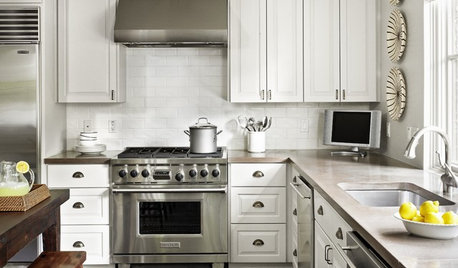
DECORATING GUIDES12 Ways to Style Your Interior Photos Like a Pro
For great home photos, declutter, prop well, and tell a little story
Full Story
OUTBUILDINGSRoom of the Day: Spa-Like Relaxing in a London Garden
Nature inspired the design of this gym, sauna, hot tub and more, so it blends seamlessly with the surrounding woodland
Full Story
GARDENING AND LANDSCAPINGWhat to Know Before You Buy Teak Outdoor Furniture
Learn about finishes, weathering, care and that age-old oil debate to get the teak furnishings that suit you best
Full Story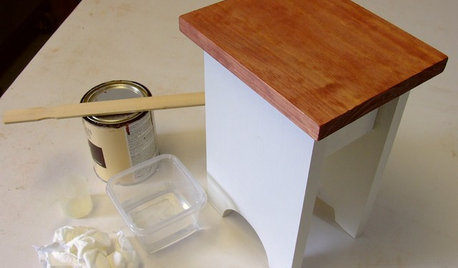
DIY PROJECTSCool Tip: Mimic Stain With a DIY Color Wash
Get the look of an oil-based stain without all the bother, using this easy wash made with paint
Full Story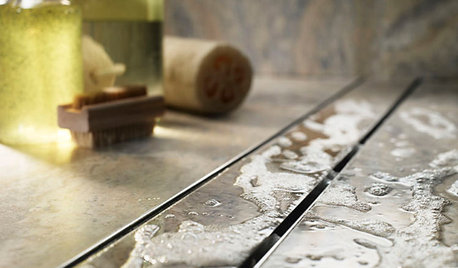
HOUSEKEEPING12 Cleaning Projects That Go a Little Deeper — Naturally
Eucalyptus oil for germy door handles. Baking soda for oven grime. Here are nontoxic solutions for often-overlooked cleaning jobs
Full Story



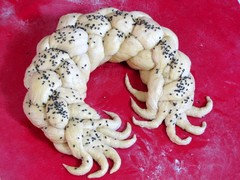
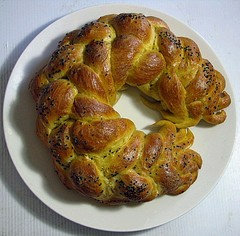
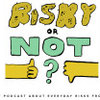
plllog